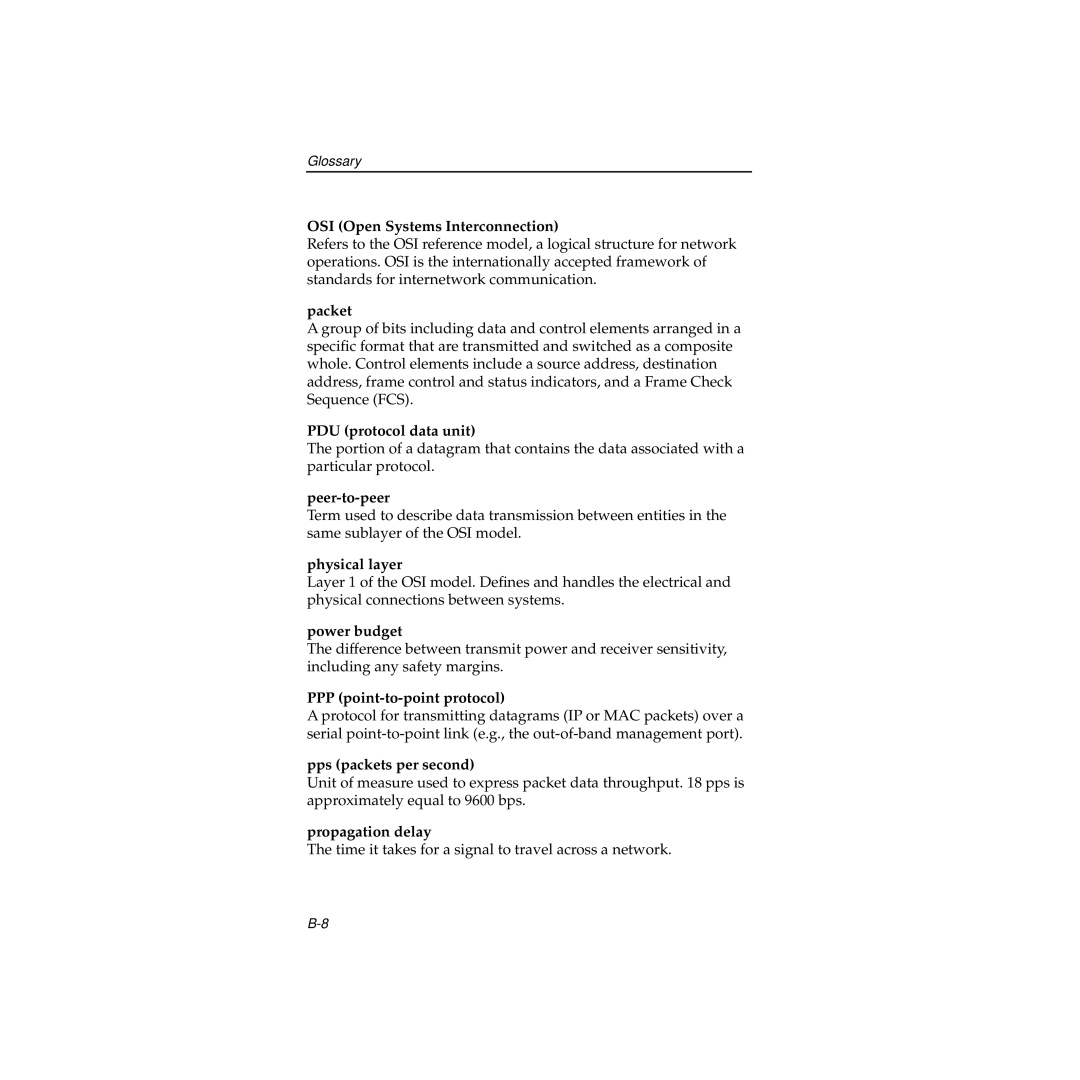Glossary
OSI (Open Systems Interconnection)
Refers to the OSI reference model, a logical structure for network operations. OSI is the internationally accepted framework of standards for internetwork communication.
packet
A group of bits including data and control elements arranged in a specific format that are transmitted and switched as a composite whole. Control elements include a source address, destination address, frame control and status indicators, and a Frame Check Sequence (FCS).
PDU (protocol data unit)
The portion of a datagram that contains the data associated with a particular protocol.
peer-to-peer
Term used to describe data transmission between entities in the same sublayer of the OSI model.
physical layer
Layer 1 of the OSI model. Defines and handles the electrical and physical connections between systems.
power budget
The difference between transmit power and receiver sensitivity, including any safety margins.
PPP (point-to-point protocol)
A protocol for transmitting datagrams (IP or MAC packets) over a serial
pps (packets per second)
Unit of measure used to express packet data throughput. 18 pps is approximately equal to 9600 bps.
propagation delay
The time it takes for a signal to travel across a network.
